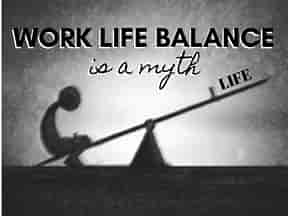The Myth of Work-Life Balance
Introduction
In an age where women are breaking glass ceilings and redefining success, the question remains: can they really have it all? The concept of work-life balance has become a buzzword, often idealized as the perfect equilibrium between career ambitions and family life. But is this balance truly attainable, or is it just a myth that sets women up for disappointment? In this article, we will explore the complexities of work-life balance for women, the societal pressures involved, and whether striving for this ideal is realistic or simply a recipe for burnout.
Understanding Work-Life Balance
What Does Work-Life Balance Mean?
Work-life balance refers to the ability to effectively manage professional responsibilities alongside personal life commitments. It’s about finding a harmonious blend where neither work nor home life suffers. However, the definition of balance can vary greatly from person to person. For some, it might mean working fewer hours; for others, it could involve having flexible schedules that allow for family time.

The Historical Context
Historically, women have been expected to juggle multiple roles—career woman, caregiver, homemaker—all while maintaining an image of perfection. This expectation has deep roots in societal norms that dictate how women should behave both at home and in the workplace. As more women entered the workforce over the decades, the pressure to achieve a flawless work-life balance intensified.
The Reality of Work-Life Balance for Women
The Double Burden
Many studies highlight that women disproportionately shoulder domestic responsibilities compared to men. According to a 2020 study by McKinsey & Company, women are often burdened with unpaid household and caregiving duties. This double burden complicates their ability to excel in both spheres and raises questions about whether true balance can ever be achieved.
The Impact of Societal Expectations
Societal expectations play a significant role in shaping how women perceive their responsibilities. Women are often conditioned to believe that they must excel in their careers while also being perfect mothers and partners. This unrealistic standard can lead to feelings of inadequacy and guilt when they inevitably fall short.

The Myth of “Having It All”
What Does “Having It All” Mean?
The phrase “having it all” suggests that one can achieve career success, maintain a fulfilling personal life, and enjoy leisure time without sacrificing any aspect. However, this notion is often misleading. It implies that all these elements can coexist seamlessly, which is rarely the case in reality.
The Pressure of Perfectionism
Women are often socialized to strive for perfection in every aspect of their lives. This pressure can lead to stress and anxiety as they attempt to meet these high expectations. The pursuit of perfection can be exhausting and counterproductive, ultimately hindering their ability to find genuine fulfillment.
The Role of Flexibility
Embracing Flexibility in Work Arrangements
Flexibility in work arrangements has become increasingly important for achieving some semblance of work-life balance. Remote work options and flexible hours allow women to better manage their time and responsibilities. However, not all workplaces offer these arrangements, leaving many women struggling to find a workable solution.
The Importance of Setting Boundaries
Setting boundaries is crucial for maintaining mental well-being. Women need to communicate their limits at work and home clearly. This might mean saying no to additional responsibilities or carving out specific times for family activities. By prioritizing their needs, women can create a more manageable lifestyle.
The Influence of Technology
Blurring Lines Between Work and Home
Technology has transformed how we work and communicate, but it has also blurred the lines between professional and personal life. With constant connectivity through smartphones and laptops, many women find it challenging to disconnect from work-related tasks even during personal time.
Managing Digital Distractions
To achieve a better work-life balance, it’s essential for women to manage digital distractions effectively. Setting specific times for checking emails or social media can help create designated periods for focused work or quality family time.
The Importance of Self-Care
Prioritizing Personal Well-Being
Amidst the chaos of balancing work and family life, self-care often takes a back seat. Women must recognize that prioritizing their well-being is not selfish; it’s necessary for sustaining energy levels and mental health. Activities like exercise, meditation, or simply taking time for hobbies can significantly impact overall happiness.

Overcoming Guilt Associated with Self-Care
Many women feel guilty about taking time for themselves when there are responsibilities waiting at home or at work. It’s essential to reframe this mindset—self-care is not a luxury but a necessity that enables them to perform better in all areas of life.
Redefining Success
Moving Beyond Traditional Metrics
Success should not be defined solely by career achievements or financial gains. Women need to redefine what success means personally—whether it’s nurturing strong relationships, pursuing passions outside of work, or achieving personal growth.
Celebrating Small Wins
Recognizing and celebrating small victories can help foster a positive mindset. Whether it’s completing a challenging project at work or spending quality time with family, acknowledging these moments contributes to an overall sense of fulfillment.
Addressing Systemic Issues
The Role of Employers in Supporting Work-Life Balance
Employers play a crucial role in shaping workplace culture around work-life balance. Organizations that prioritize employee well-being through flexible policies, parental leave options, and mental health resources contribute positively to their employees’ lives.
Advocating for Change
Women must advocate for systemic changes within organizations that promote equitable distribution of responsibilities at home and at work. By pushing for policies that support working mothers—such as affordable childcare options—they can help create an environment where achieving balance becomes more feasible.
Read This: The Evolution of Fashion Trends: A Look Back at the Last Decade
Conclusion: Can Women Really Have It All?
The quest for perfect work-life balance may indeed be a myth—one that sets unrealistic expectations for women navigating the complexities of modern life. While achieving complete harmony between career aspirations and personal commitments may be unattainable, it’s essential to recognize that balance looks different for everyone.
Women should focus on setting realistic goals based on their unique circumstances rather than striving for an idealized version of success perpetuated by society. By embracing flexibility, prioritizing self-care, and advocating for systemic changes in workplaces and homes alike, women can create fulfilling lives that honor both their professional ambitions and personal values.
FAQs
1. What does “work-life balance” mean?
Work-life balance refers to effectively managing professional responsibilities alongside personal commitments without compromising either area.
2. Is it realistic for women to achieve perfect work-life balance?
Achieving perfect work-life balance is often unrealistic due to societal pressures and expectations placed on women; however, finding personalized balance is possible.
3. How can technology impact work-life balance?
Technology can blur the lines between work and home life by enabling constant connectivity; managing digital distractions is essential for maintaining boundaries.
4. What role do employers play in supporting women’s work-life balance?
Employers can support women’s work-life balance by offering flexible policies, parental leave options, and resources focused on employee well-being.
5. Why is self-care important in achieving work-life balance?
Self-care is crucial because it helps sustain energy levels and mental health; prioritizing personal well-being enables individuals to perform better in all areas of life.


